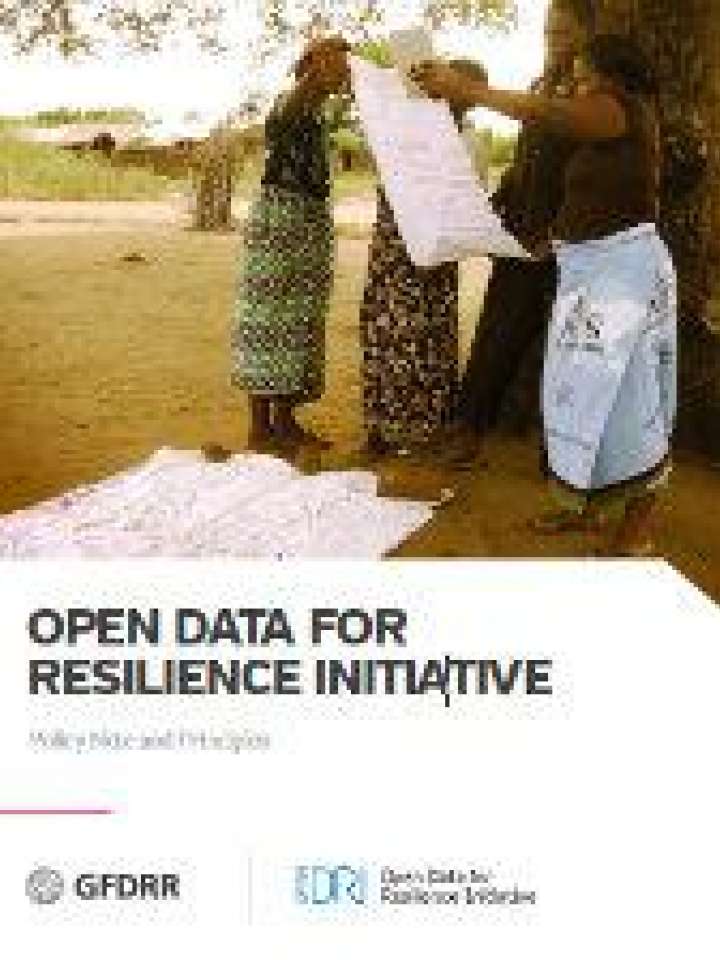Open data for resilience initiative: policy note and principles
This document describes the approach taken by the Open Data for Resilience Initiative (OpenDRI) team to design and enact impactful and sustainable projects with our partner organizations and communities. It is organized into a series of nine principles, the first 5 of which guide the thinking about how risk information should be created, managed, and used. The final 4 principles shape the relationships with other actors involved in OpenDRI work. Following a short description of the principle, this document also provides examples from past OpenDRI projects and suggestions for relevant resources.
The Open Data for Resilience Initiative (OpenDRI) was launched in 2011 to bring the policies and practices of the global open data movement to bear on the challenges of reducing vulnerability to natural hazards and the impacts of climate change. The OpenDRI project supports World Bank Disaster Risk Management Teams and our partners in governments, civil society, and international organizations to build local capacity and long-term ownership of open data projects that are tailored to meet specific needs and goals of their stakeholders. OpenDRI projects work to improve processes surrounding the sharing, creation, and communication of risk data. To increase public access to risk information, OpenDRI engages in dialogue with governments on the value of open data through the creation of local working groups and pilot projects that evolve into long-term locally owned open data projects. OpenDRI provides technical solutions and assistance for the project implementation in the form of open data platforms. Such platforms allow for hosting, analyzing and managing data that is necessary for planning decision-making related to disaster risk. Partners can share geospatial data, combine those data into visualizations and exchange both the raw data and maps they produce. OpenDRI projects work to improve processes surrounding the sharing, creation, and communication of risk data.
Explore further
